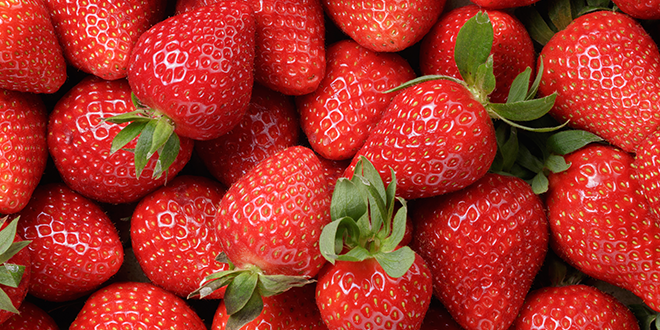Mar 11, 2020Eating more strawberries may reduce Alzheimer’s dementia risk
Older adults may reduce their risk of Alzheimer’s dementia by increasing their intake of strawberries, as determined by researchers at Rush University.
Puja Agarwal and her team analyzed data collected for the Rush Memory and Aging Project (MAP) between 2004 and 2018. After reviewing the complete data of 925 participants’ annual food frequency questionnaires (FFQs) and extensive neurological evaluations, an association between frequent strawberry consumption and decreased Alzheimer’s dementia emerged. They published their report Association of Strawberries and Anthocyanidin Intake with Alzheimer’s Dementia Risk in the December 2019 issue of Nutrients.
How the Study Came About
Current research on Alzheimer’s dementia suggests a potential link between the disease symptoms and increased oxidative stress and inflammation. Based on in-vitro, animal, and human feeding studies, strawberries appear to have anti-oxidative and anti-inflammatory properties, possibly due to their high content of flavonoids and vitamin C. Strawberries have been identified mostly in animal studies to improve neuronal function, cognition, and some motor outcomes. This connection led Dr. Agarwal to hypothesize that higher frequency of strawberry intake would be associated with lower risk of Alzheimer’s disease.
Methods
Participants were 58-98 years old and dementia-free at the start of the study. The 144-item FFQ had a question specific to strawberries, allowing the researchers to estimate the frequency of strawberry intake by each participant. Participants indicated whether they ate strawberries never or less than once a month; 1–3 times/month; once per week; or 2-4 times/week. In addition to answering a FFQ, participants underwent annual neurological exams based on a three-stage process including computer scoring of cognitive tests, clinical judgment by a neuropsychologist, and diagnostic classification by a clinician.
Effects of Frequent Strawberry Consumption
Strawberry intake ranged from 0 to 2 servings/week (mean intake: 0.64 servings/week). The team found that for every one serving increase in strawberry consumption, there was a 24% reduced risk of Alzheimer’s dementia associated (when controlled for age, sex, education, physical activity, participation in cognitive activities, Apo-E4 status, dietary intake of other fruits, total calorie intake, other foods associated with better cognition including leafy green vegetables and seafood, cardiovascular conditions, and total vitamin E intake). Overall, participants consuming one or more servings of strawberries per week had a 34% lower risk of developing Alzheimer’s dementia when compared to those consuming none or less than once per month (HR = 0.66 (95% CI: 0.46, 0.95)).
While this is the first longitudinal cohort study of older adults to report on the association of strawberries with Alzheimer’s dementia risk, there is support for their results. The Nurses’ Health Study demonstrated that strawberry consumption, anthocyanidins, and total flavonoid intake were each associated with slower cognitive decline. An additional 2018 random control trial found that strawberry polyphenols are absorbed and metabolized by the human body, and can persist in circulation.
Source: Agarwal P, Holland TM, Wang Y, Bennett DA, Morris MC. Association of Strawberries and Anthocyanidin Intake with Alzheimer’s Dementia Risk. Nutrients. 2019; 11(12):3060.
– California Strawberry Commission















